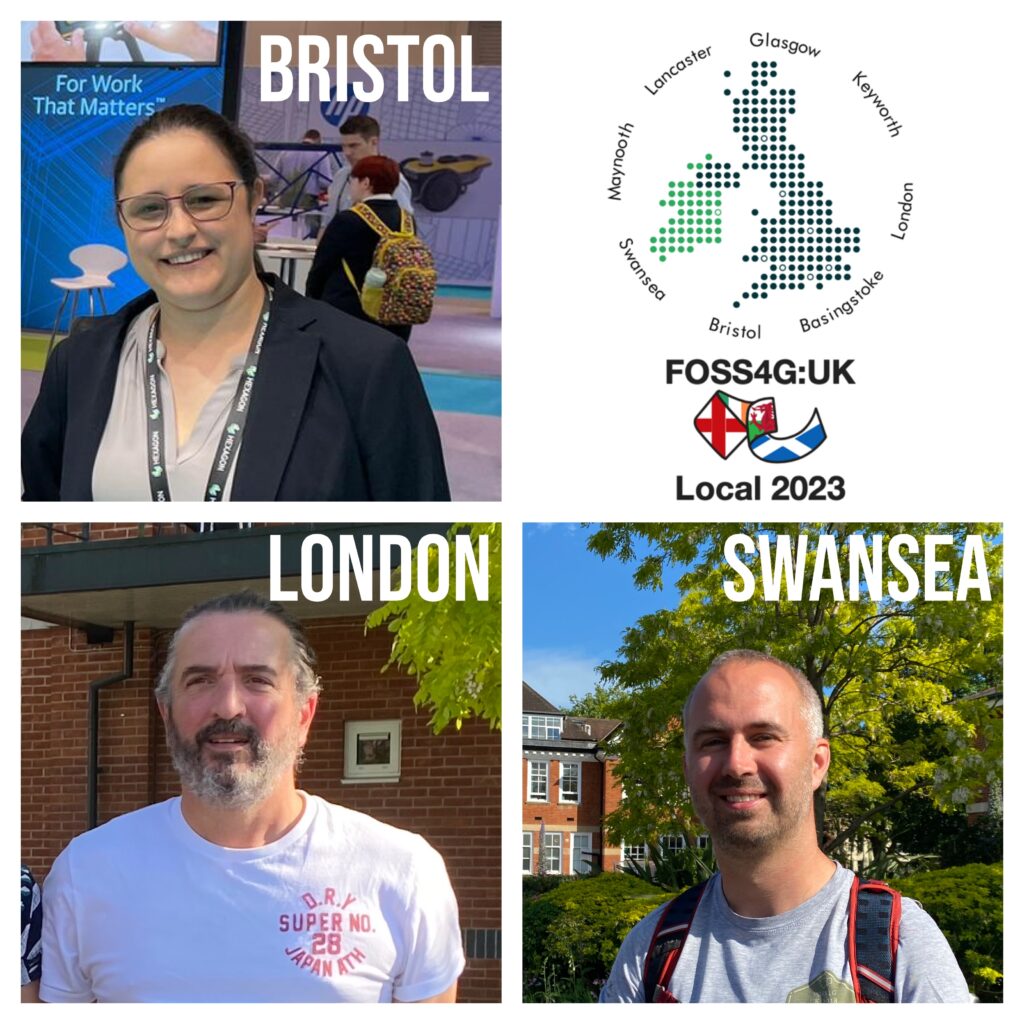
In the words of Nick Bearman, Chair of OSGeo:UK, “FOSS4GUK Local 2023 went really well. We had over 200 attendees across the 8 venues, with over 55 speakers sharing their experiences. We would like to thank everyone who helped make the day the success it was, the volunteers, our speakers, attendees and sponsors.”
Amongst the speakers were three of our team whose specialist subjects were the history of GIS, sharing maps with walkers in Wales and automated metadata creation. Here’s more information about their talks with links to YouTube recordings.
“Back to 2003: A Brief History of Open Source Mapping Adoption in the UK (a non-technical viewpoint)”.
In London, our MD, Mike Saunt, reflected on changes in attitudes towards open source GIS. When he founded Astun, potential clients frequently expressed fear, uncertainty and doubt (FUD) about adopting OSGeo technologies. Since then, open source has become more widely accepted in the UK. However, old perceptions can still die hard.
Attendees joined Mike on his mission to help organisations harness the powers of flexible, supported and collaborative open source technologies. He examined the lessons learned over the last 20 years with topics such as opening up data formats, database standardisation, FUD busting, community building, cloud adoption, acceptance and sustainable business models. He also looked ahead to the enterprise support coverage options of the future and the role they’ll play in helping risk-averse companies recognise the benefits of open source.
Watch the clip. If you’re interested in talking GIS with Mike, you can book a call here.
“Building and maintaining Paths to Wellbeing for Ramblers Cymru“
In Swansea, Matt Walker, our Principal Development Architect, and Rhys Wynne-Jones from Ramblers Cymru joined forces to give a presentation on Paths to Wellbeing, a project to promote 145 walking routes across Wales. Rhys introduced the project with Matt providing a demo and technical overview including information about data capture, ETL, web technologies, hosting and maintenance.
Watch the clip or read our short case study
“Unleashing the Potential: How Automated Metadata Creation Can Improve Your Data Quality and Accessibility”
Can large language models used to automate metadata creation improve the quality and accessibility of your data? The answer is a resounding “Yes”, according to our Data Discoverability team.
At Bristol, Elena Robu gave FOSS4G attendees practical insights into the methods, tools, and best practices for making the most of these technologies.
Using automation to simplify metadata creation means you don’t have to do things by hand. It makes your work faster and allows you to handle more data. But there’s more to it. With very little manual effort, your data will be more consistent, reliable and compliant with UK GEMINI.
You can watch a re-recording of Elena’s presentation on our YouTube channel.
“Ten Years After” Panel Discussion
A lot has happened in the ten years since the UK hosted the FOSS4G global conference in Nottingham. As one of the event team, Matt Walker joined the panel discussion alongside fellow organisers. You can watch the discussion here or watch Matt’s pre-recorded presentation here.
Other blogs about FOSS4G:UK 2023
With over 20 hours of footage to choose from, our ‘recommended viewing‘ list will help you discover some of the best presentations from this year’s event.
